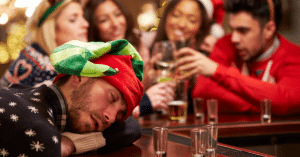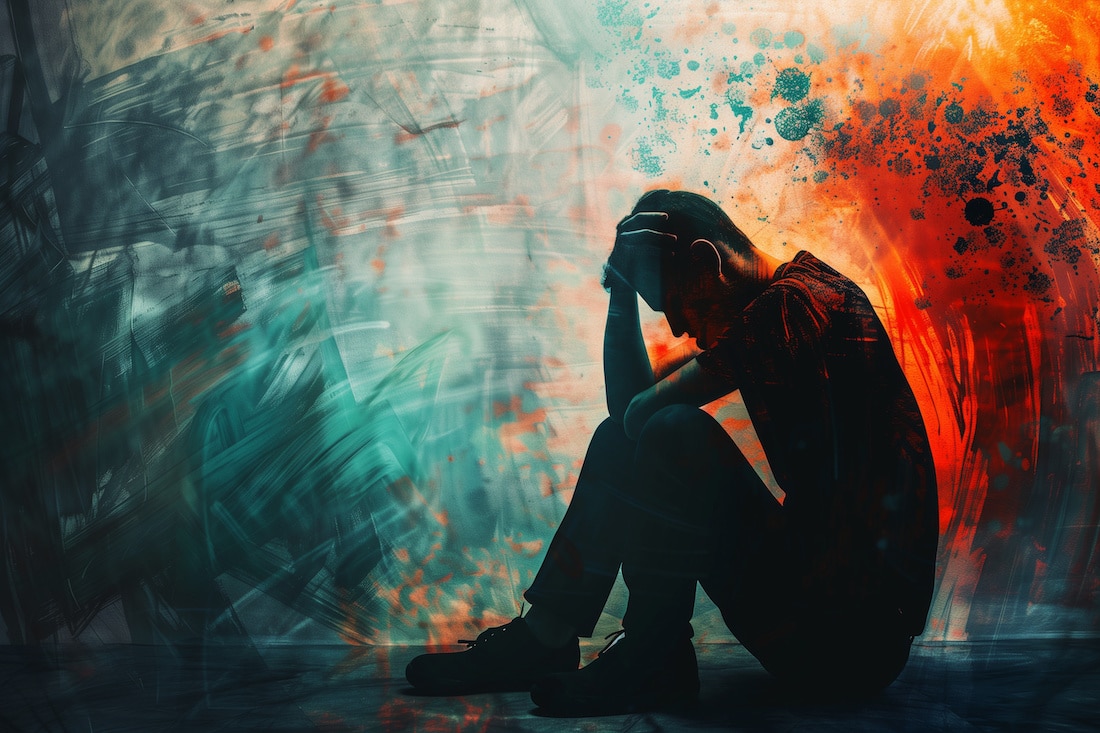 In many cultures, holiday celebrations are centered around eating and drinking with family and friends. It’s normal and even expected to indulge in all sorts of special foods and beverages that we might not enjoy at any other time of year, and sometimes even overdoing it is understood and excused as something that just happens as part of the whole holiday experience. This frame of specialness and celebration, however, can be a mask for burgeoning addiction problems. How can you tell if you or someone you love is simply overdoing the holiday cheer, or if he or she is developing an alcohol abuse problem?
In many cultures, holiday celebrations are centered around eating and drinking with family and friends. It’s normal and even expected to indulge in all sorts of special foods and beverages that we might not enjoy at any other time of year, and sometimes even overdoing it is understood and excused as something that just happens as part of the whole holiday experience. This frame of specialness and celebration, however, can be a mask for burgeoning addiction problems. How can you tell if you or someone you love is simply overdoing the holiday cheer, or if he or she is developing an alcohol abuse problem?
Signs and Symptoms of Addiction
Sometimes the signs and symptoms of an alcohol abuse problem are subtle and seem to creep up on you, but more commonly the indicators are present and noticeable. If you or a family member shows any of these signs, consider seeking professional help.
For More Information About Our Alcoholism Treatment Programs
Call Us At: (310) 455-5258
- Personality changes while drinking. People who have an alcohol abuse problem often experience personality changes when they drink. These changes are typically noticeable, not subtle or a small exaggeration of the person’s normal self. Look for shy or quiet, reserved people who suddenly become expressive and outgoing.
- Unwillingness to attend social events without alcohol. If you are picking and choosing where you go and what you’ll do based upon whether or not you can drink, this is a definite indicator that you might be developing a problem with alcohol abuse.
- Resentment and anger if the subject is brought up. If your partner behaved in an inappropriate way due to drinking at your office party, how does he or she respond when you bring it up? Are you able to have a frank conversation about how much or how often he or she is drinking? Or do you get anger or a wall of silence when the subject comes up? Irritation, resentment and/or denial of a problem are classic symptoms of a growing addiction.
- Hiding alcohol or drinking secretly, or denying drinking when it’s obvious it has been happening. Denial is a key component of developing an alcohol abuse problem. Often as someone develops alcohol abuse, they attempt to hide it, perhaps even from themselves, believing the lies they tell friends or loved ones.
- Drinking before the drinking event. If you or your loved one tends to “get warmed up” for drinking by having a drink or two before the party, consider this another indicator.
- Experiencing negative consequences from drinking. Sure, a bit of a hangover is a negative consequence, but if you or a loved one has received a DWI or been put on probation at work due to drinking-related absenteeism or other behaviors, this is an indicator of a more serious problem with alcohol abuse. If you cannot remember what happened while you were drinking, this is another sign that you are developing an addiction to alcohol.
- Trying, but being unable to stop drinking. Perhaps you’ve decided to stop or reduce drinking but are unable to keep the commitment. Have you ever said, “This is the last time” one too many times? Do you go out with the intention to stay sober, but can’t seem to say no to a drink?
- Unable to keep commitments. Another big sign of a potential problem is beginning to miss scheduled activities or being unable to consistently show to up to commitments. If you notice a loved one consistently missing holiday parties or family traditions, it may be a sign of a problem.
For More Information About Our Alcohol Addiction Treatment Programs
Call Us At: (310) 455-5258
Social drinkers may occasionally overindulge, especially during the holidays. When they do so, you may see a slight change in personality while he or she is drunk, but that change is typically just an exaggeration of his or her normal personality traits. Usually social drinkers realize they have had too much and choose not to drive home. The next day when confronted about their behavior, they remember what they said and did – and often are genuinely remorseful. Despite feeling embarrassed, they typically admit they overdid it and change their behavior.
What You Can Do
If you recognize yourself in some or all of the above signs of alcohol abuse, don’t panic. You can change your behavior and avoid catastrophic consequences of your drinking. It is a myth that people only stop drinking after they hit “rock bottom” – many people stop or change their drinking behavior long before serious crises result.
- Go to a meeting. Not sure you are an alcoholic? That’s ok. You can still attend an Alcoholics Anonymous (AA) meeting and listen or share. Hearing other’s stories may help you understand your own issues better.
- Stop drinking. Despite the temptations of the holidays, parties and special occasions, you can stop drinking now, today. Taking some time away from drinking will help you gain a better perspective on your drinking behavior and what role drinking has been playing in your life.
- Talk to a professional. Call a substance abuse counselor or psychotherapist and have an evaluation. Again, even if you have not bottomed out, you can still benefit from an assessment and, if recommended, treatment.
If you or a loved one are struggling with alcoholism, please call us at (310) 455-5258 or submit the form below to learn more about our alcohol addiction treatment programs in Los Angeles.



